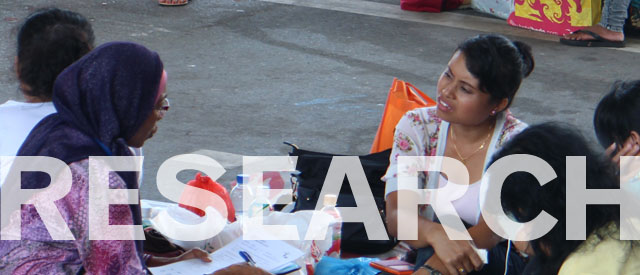
1 June 2016, Transient Workers Count too
The great majority of transnational migrant workers pay money in order to obtain jobs in other countries. The charges are often exorbitant. Most of the money goes to middlemen: agents in their own country or in destination countries, local recruiters and training centres (which often function as middlemen institutions). Some money may also be paid to governments for passports, insurance and other purposes, but it is the payments to those involved in their recruitment that account for the great majority of migrant workers’ costs.
It is very common for domestic workers in Singapore to have six to eight months of their salary deducted to cover recruitment costs; Bangladeshi construction workers normally require at least 16 months to pay back the debt they take on to pay for their recruitment.
Recruitment costs therefore account for a major portion of most migrant workers’ total salaries in the first year or two of a placement overseas, and, if they lose their first job, return home and seek another job abroad, they generally have to pay all over again. This significantly erodes the benefits of the sacrifice they make in working in other countries, and those who lose their jobs early, for whatever reason, stand to go home worse off than if they had never left their families behind to work abroad.
Efforts are being made internationally to find ways to cut drastically or eliminate middlemen expenses for workers. In TWC2, a team is working on a series of papers that look at how other countries administer the recruitment of migrant workers and, in particular, any measures they use to limit the costs borne by the workers. We aim to look not only at what looks good in principle, but to see what works in practice. From this process, we hope to gain a better idea of what might be effective in reducing recruitment costs for workers who come to Singapore.
As individual papers are completed, we want to share them on this website. We hope that they will provide useful information and stimulate discussion.
Each paper is written by a volunteer researcher. It is then reviewed by team members and an NGO or expert in the country under review is asked for feedback on the report before it undergoes a final redrafting.